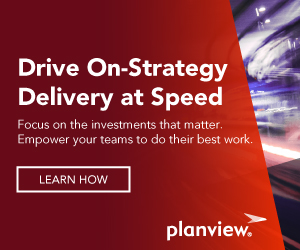
Have you seen the hit ABC TV show, Shark Tank? (Or, as it’s known elsewhere around the world, Dragon’s Den?) Its inspirational premise sparks the creative genius in each of us as regular folks go into the “tank” to pitch their inventions and ideas to a panel of “shark” investors, all of whom attack with hard questions about profitability and marketability. The (sometimes) novice inventors have to be ready with hard metrics, market research, and in some cases patents pending in order to entice one of the investors to partner, in the hopes of cashing in on the next big thing.
Sometimes the inventors stand tall and sometimes they’re left in a pool of sweat. But not every inventor walks out of the tank with a deal from an investor because not every product is a winner. The same should be the case for your product gate meetings and the projects going through gate. Think about it:
- The gatekeepers are the sharks, looking to invest their money wisely in things that best match their strategy and will result in the best return
- The project team members are those spirited inventors who diligently prepare their business case and deliverables, and passionately vie for the resources and funding from investors to continue pursuing their dream
But here’s the difference between the Shark Tank and your gate meeting: that tank has teeth! Sharp teeth! The sharks aren’t interested in how hard you’ve worked on your invention or whether they think you’re cute – they’re interested in making money! They ask tough questions to ensure they’re making a smart investment given their current portfolio mix.
So, if a gated process and gate meetings are established to prevent ill-fated projects from making it through the lifecycle process, and squandering money and resources, why are so many projects not killed or not killed early enough?
In all of my discussions with great companies, conference presentations, and implementation work around the gated product development process, it’s disappointingly true that time and time again I see companies with the people, processes, and tools in place, but a lack of teeth in their gate process. They continue to be swayed by personality. They rely on gut because they don’t have visibility to the facts. They say yes to every project that comes to gate and their innovation funnel looks more like a tunnel. This results in having too much work for their resources (the number one reported pain point from the Fourth Product Portfolio Management Benchmark Study) and nothing making it to market on time or on budget because it got snagged with competing priorities in the tunnel! (Ummm . . . wasn’t that the whole POINT of setting up a gated process in the first place? Yes.)
I honestly think this is why stage gate sometimes gets a bad rap in the industry. It’s not the fault of the process or the tool. It’s the people and the culture who are engaged in the process that are acting like a big school of guppies. Gatekeepers need to have a little moxy . . . a little hutzpa . . . like big white sharks with sharp gnarly teeth ready to kill. It doesn’t’ have to be a blood bath. And I’m not saying that it should be all about the financial return or “just the facts, ma’am.” But it also shouldn’t be a beauty contest. If you apply the principles of Shark Tank to the gated process or pretend like your teenager son is asking for money and the keys to the car on Saturday night, unrelenting scrutiny, high visibility, and serious fact checking are necessary.
Do you think gatekeepers in gated process should act more like sharks and ask hard questions? Share your thoughts by leaving a comment below.




